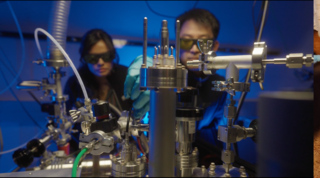Current Position:
Current Institution:
Thesis Title: “Levitated Optomechanical Sensors for Fundamental Physics”
Thesis Abstract: Optomechanical detectors offer a highly sensitive method for measuring weak forces. By optically trapping these systems in high vacuum, one can drastically reduce environmental noise and achieve exquisite control over the detector’s center-of-mass motion, rotational degrees of freedom, and physical characteristics such as charge states. This level of isolation enables the detector’s noise to reach the quantum measurement regime, where the dominant noise source is the measurement process itself.
Such sensors are a powerful tool for detecting particle recoils, such as those from composite dark matter or other rare particle scattering events. These same detectors can also serve as probes for radioactive decays from isotopes directly implanted into the detector through momentum reconstruction of the decay products, which can enable the study of the forces imparted during radioactive decay processes. More broadly, mechanical particle detection opens exciting possibilities for studying neutral and weakly interacting particles, including neutrinos, thus providing a new platform for fundamental investigations in particle and nuclear physics.
I will describe the exquisite control we can apply to our levitated optomechanical sensor and its promising future as an impulse detector with the potential of working at the standard quantum limit. I will also describe our attempt to measure recoils from composite dark matter with long-range interactions and recent work to measure individual mechanical recoils from nuclear decays using an optically levitated optomechanical sensor.
Information updated 08/07/2025




